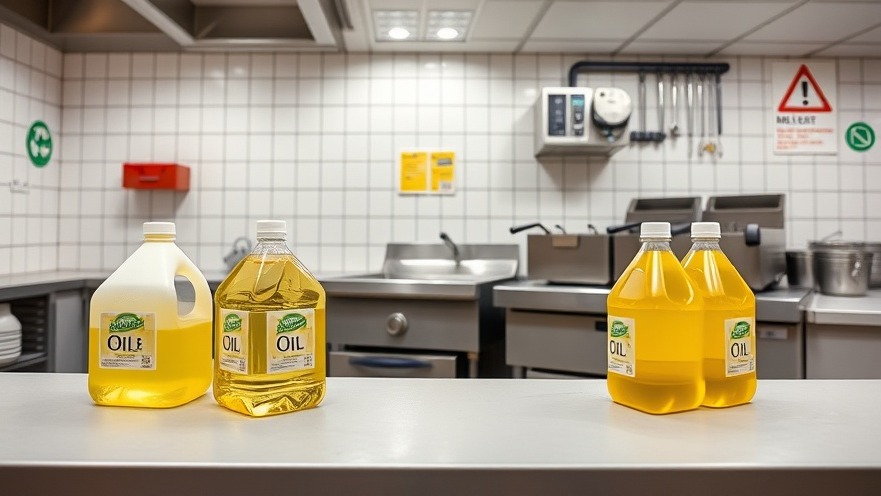
Hilton Leads the Charge Against Food Waste
In an age where sustainability is not just a trend but a necessity, global hospitality giant Hilton is taking significant strides in reducing food waste. With over 30% of food produced in the United States going uneaten, this initiative is not just about environmental responsibility but also making good business sense. The hospitality sector, noted as the third-largest contributor to food waste in the U.S., stands to benefit greatly from adopting a more sustainable approach to operations.
The Challenge of Food Waste
According to the food waste solutions nonprofit ReFED, food waste generates 10% of the country's methane emissions and costs the economy a staggering $382 billion annually. Emma Banks, Hilton’s vice president of food and beverage strategy and development, emphasized the urgency of this initiative. "We know hospitality accounts for about 3 percent of food waste globally, and we’re laser-focused on reducing it," she stated. Not only does reducing waste help the environment, but it also attracts purpose-led guests and helps retain dedicated staff.
Innovative Solutions Through Technology
To tackle this challenging issue, Hilton has partnered with Winnow, a commercial food waste solutions company leveraging AI technology to measure and analyze food waste. The Winnow system, which incorporates scales, cameras, and data analytics, has already been implemented in over 200 Hilton hotels, primarily in Europe and the Middle East. This technology tracks both plate waste and food preparation surplus, enabling chefs to make informed decisions on portion sizes and menu offerings.
The Taste of Zero Waste Initiative
As part of its sustainability agenda, Hilton introduced the "Taste of Zero Waste" pilot project. The initiative features menus designed to demonstrate how hotels can reduce food waste using creative techniques. For instance, eggs are served fresh and cooked to order, and smaller croissants encourage guests to finish their meals rather than leave scraps. Such strategies are not only beneficial for the planet but also enhance the dining experience for guests.
Adapting to Cultural Perspectives on Waste
Effective waste prevention often requires a cultural shift. In some regions, culinary traditions might already promote a mindset of using every part of an ingredient. Hilton aims to adapt this ethos across its global operations by sharing insights and best practices from its various locales. This cultural connection highlights the importance of understanding local customs and practices when implementing sustainability initiatives.
Future Insights and Trends in Hospitality Sustainability
Looking ahead, we can expect to see more hotels adopting similar technology-driven waste management systems. The integration of AI in food production is likely to grow, positioning sustainability as a pivotal aspect of hospitality business models. The awareness and actions taken by companies like Hilton may pave the way for industry standards that prioritize environmental responsibility.
As boutique hospitality professionals consider their sustainability goals, initiatives such as off-grid solar energy, urban farming, and efficient kitchen techniques can prove invaluable in minimizing waste and promoting an eco-conscious brand image.
Actionable Insights for Hospitality Professionals
For small-scale hotel owners and eco-lodge operators, embracing technology to monitor and reduce food waste can set them apart in a competitive market. Investing in initiatives that reduce fossil fuel consumption and enhance waste management can attract environmentally-minded guests, thereby promising a brighter future for both the business and the planet.
Conclusion: A Call to Action
As Hilton continues to lead the charge against food waste, other hospitality businesses must consider how they can integrate sustainability into their operations. By taking decisive action now, the industry can contribute to a more sustainable future, improving environmental health and creating positive impacts that resonate with consumers worldwide. What initiatives can you adopt in your business to reduce waste and enhance sustainability? Together, we can cultivate a healthier planet for future generations.
 Add Row
Add Row  Add
Add 




Write A Comment